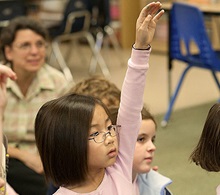 These days, parents have so many different options when it comes to childcare. Parents can choose from childcare centers, home care providers, nannies, non-profit programs, state-funded programs, and so many others. There is a variety of titles for these services, including childcare, daycare, preschool, or early childhood education. Are these terms interchangeable? And how do they differ in terms of quality?
These days, parents have so many different options when it comes to childcare. Parents can choose from childcare centers, home care providers, nannies, non-profit programs, state-funded programs, and so many others. There is a variety of titles for these services, including childcare, daycare, preschool, or early childhood education. Are these terms interchangeable? And how do they differ in terms of quality?
All of the options provide childcare, but saying “early childhood education” gives the impression of an additional educational component beyond basic care. High-quality care comes in many forms and under many terms. A program’s use of the term “early childhood education” doesn’t necessarily guarantee a high-quality program any more than “daycare” implies a lack thereof.
Regardless of what the organization is called, high-quality early education begins with some basic elements that children need to thrive. Children need and deserve teachers who understand them and treat them with kindness and respect. Families should feel that they are partners in their children’s care, who are wholly involved in the decision-making process. You will find all of this and more at Premier Academy!
Importance of Early Childhood Education
We see more and more in early education, the introduction of teaching methods and content designed for elementary-age children to the early childhood classroom. Studies about early education and child development have found that this could actually be extremely damaging to the growth and development of young children. The best childcare curriculum is based on a complete understanding of how young children learn – through engaging, hands-on experiences within a setting of comfort and trust.
Early childhood curriculum needs to take into account all developmental areas, including social-emotional, physical, cognitive, and language development.
Along with this, early childhood programs can and should address academic topics, such as early math, literacy, and science. The challenge lies in teaching these skills in a way that respects how younger children learn. When learning is introduced through a hands-on, playful, engaging curriculum with kind and nurturing teachers, children gain confidence and develop a lifelong love of learning. They enter kindergarten with “ready to learn” skills, such as being able to ask and answer questions, wait for a turn, follow directions, and work cooperatively with peers. Some children enter kindergarten already reading; others need more time. The point is that each child is offered a rich feast of learning opportunities and allowed to grow at his or her own pace.
Great early childhood development and care goes by many names. The difference between a quality early education setting and a mediocre one is not the location or the name. Good organizations hire and retain good teachers, are committed to training and developing their teachers, and focus on respect for children and families.

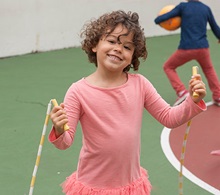 Child Development through Structured & Unstructured Play
Child Development through Structured & Unstructured Play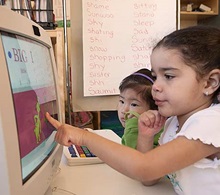 As technology becomes more accessible and affordable, more and more families are using it and when you are looking for a Nebraska daycare, you should look for a center that understand the correct use of technology for all ages. According to a 2013 study by Common Sense Media, an organization dedicated to helping families use technology wisely, 75 percent of children under the age of 8 have access to a tablet or mobile device, an increase of 25 percent in just two years. And that number is growing every year.
As technology becomes more accessible and affordable, more and more families are using it and when you are looking for a Nebraska daycare, you should look for a center that understand the correct use of technology for all ages. According to a 2013 study by Common Sense Media, an organization dedicated to helping families use technology wisely, 75 percent of children under the age of 8 have access to a tablet or mobile device, an increase of 25 percent in just two years. And that number is growing every year.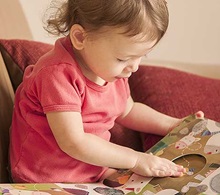 Reading is a perfect way to spend quality time with your children. While helping children to develop essential literacy and reading skills, stories spark children’s imaginations and create memories that last a lifetime. Here are a few simple tips from Barefoot Books for making storytime a memorable and enjoyable experience for families.
Reading is a perfect way to spend quality time with your children. While helping children to develop essential literacy and reading skills, stories spark children’s imaginations and create memories that last a lifetime. Here are a few simple tips from Barefoot Books for making storytime a memorable and enjoyable experience for families.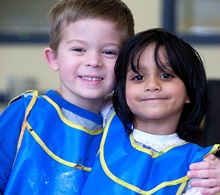 We here at Premiere Academy are big believers in fostering social and emotional development in preschoolers. Social-emotional development affects every aspect of a child’s life, including personal relationships, academic growth, and self-esteem. When children feel good about themselves and have the skills to interact successfully with others, their capacity to achieve skyrockets.
We here at Premiere Academy are big believers in fostering social and emotional development in preschoolers. Social-emotional development affects every aspect of a child’s life, including personal relationships, academic growth, and self-esteem. When children feel good about themselves and have the skills to interact successfully with others, their capacity to achieve skyrockets.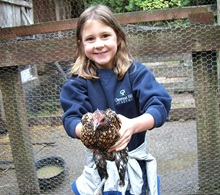 You’ve probably heard about the benefits of nature and outdoor play for children. According to the National Wildlife Federation, outdoor play boosts fitness and decreases the risk of childhood obesity; increases focus and academic achievement; and reduces stress and increases feelings of well-being.
You’ve probably heard about the benefits of nature and outdoor play for children. According to the National Wildlife Federation, outdoor play boosts fitness and decreases the risk of childhood obesity; increases focus and academic achievement; and reduces stress and increases feelings of well-being.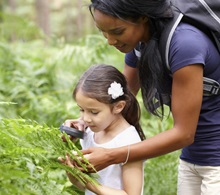 After a busy week of responsibilities, caring for children, and working in and out of the home, we cherish opportunities to be with family members. Shared quality time strengthens your family bond and helps everyone feel valued and respected. It is not necessary to make elaborate plans or partake in costly undertakings to enjoy family time.
After a busy week of responsibilities, caring for children, and working in and out of the home, we cherish opportunities to be with family members. Shared quality time strengthens your family bond and helps everyone feel valued and respected. It is not necessary to make elaborate plans or partake in costly undertakings to enjoy family time. One of the most common struggles parents have is dealing with picky eaters. Does any of this sound familiar to you?
One of the most common struggles parents have is dealing with picky eaters. Does any of this sound familiar to you?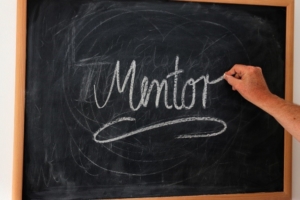 Mentoring is one of the oldest teaching methods in the world. Mentoring is really a personal coaching strategy where someone that has a specific skill or subject matter expertise works with another person to impart their knowledge in a very personal and connected way.
Mentoring is one of the oldest teaching methods in the world. Mentoring is really a personal coaching strategy where someone that has a specific skill or subject matter expertise works with another person to impart their knowledge in a very personal and connected way. One annual tradition in families around the world is to set goals, or resolutions, on New Year’s Eve. If you and your family celebrate this tradition it is a great opportunity to start to talk to your children about how to set goal that are going to help them to achieve their personal objectives in life.
One annual tradition in families around the world is to set goals, or resolutions, on New Year’s Eve. If you and your family celebrate this tradition it is a great opportunity to start to talk to your children about how to set goal that are going to help them to achieve their personal objectives in life.